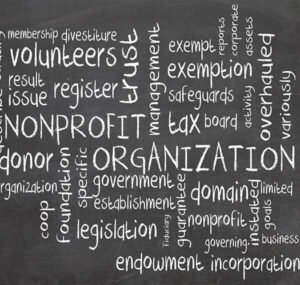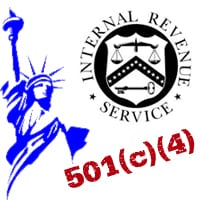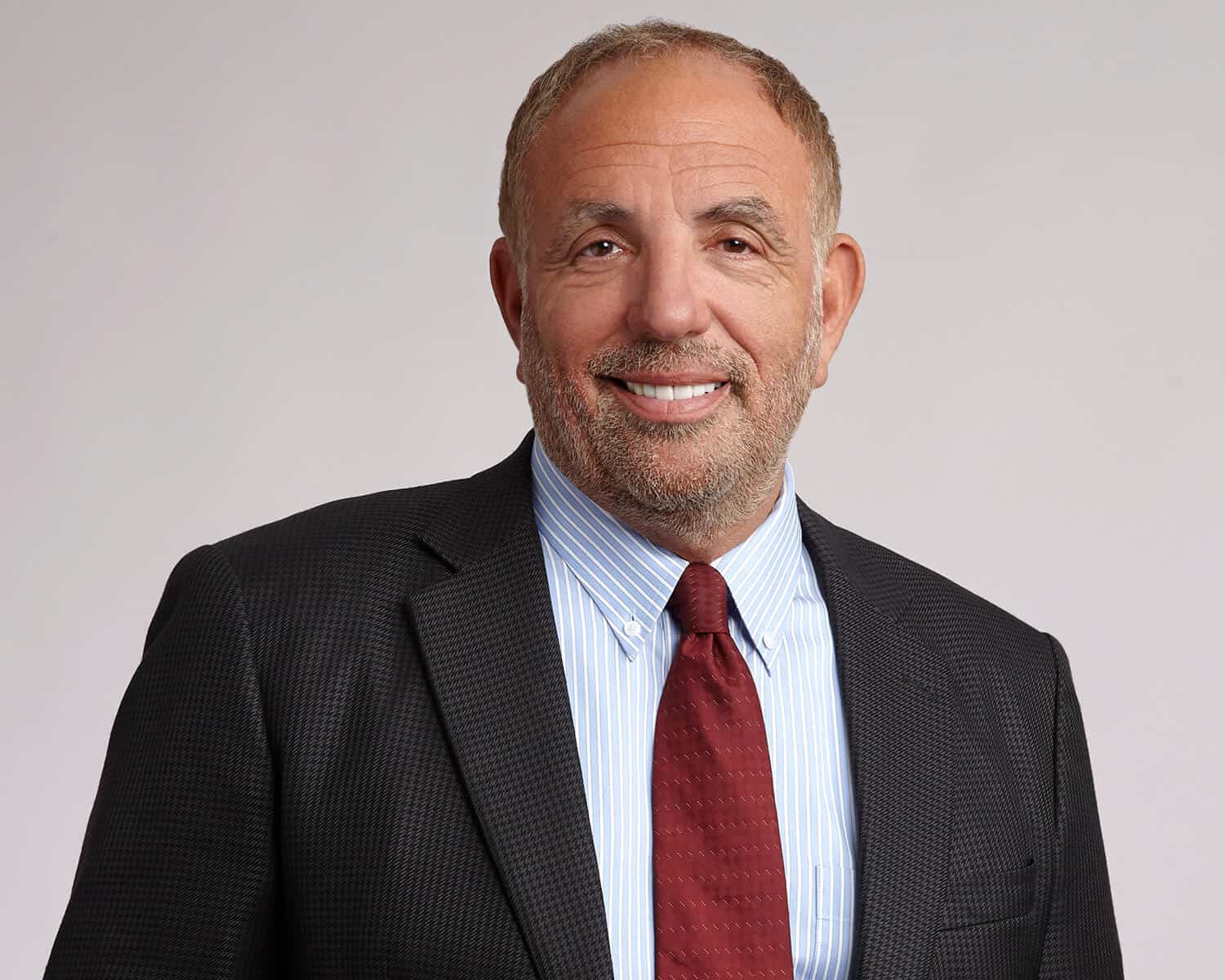On January 6, 2021, a conspiracy theory-fueled rally turned into an armed insurrection at the United States Capitol. There are many lessons we can learn from what happened, but in this article, I focus on a narrow lesson for the nonprofit community. Specifically, I consider what could happen to those nonprofits that helped organize the March which became a riot and the lessons nonprofit professionals may take away from one of America’s darkest moments.
The IRS prohibits tax-exempt organizations from engaging in activities that are illegal or contrary to public policy. Given the nature of the rally (an attempt to rally support to overturn the results of a presidential election) and its aftermath (an illegal and violent insurrection at the Capitol), some nonprofits that helped organize the rally could have their tax-exempt status revoked under the illegality and public policy doctrines. In this piece, I review the IRS’s rules, discuss how they might apply to the rally, and offer suggestions for nonprofits that want to avoid getting in trouble with IRS.
The Background
Under longstanding IRS rules, tax-exempt organizations must be organized and operated for exempt purposes. An organization is deemed to NOT be organized and operated for exempt purposes if its activities are illegal or contrary to public policy. (For a more detailed discussion of Illegality & Public Policy, see the IRS’s EO CPE Texts from 1985 and 1994). The illegality doctrine acts as a check to assure that the federal government does not support through tax exemption an organization engaged in behavior the government is charged with preventing. Similarly, the public policy doctrine ensures that the federal government isn’t supporting behavior that adds to government’s burdens. To determine whether a nonprofit might lose its exemption, the IRS looks to the nature and extent of the activities carried on by the organization.
The centrality of the improper activities to the nonprofit’s overall purpose is important. If the nonprofit is organized to accomplish an illegal purpose, it should never qualify for tax-exemption in the first place. In other words, if any of the nonprofits that sponsored the January 6 rally had as their central purpose “the armed overthrow of the U.S. government”, they would never have been recognized by IRS as tax-exempt in the first place.
Even if a nonprofit qualifies for tax-exemption, if its activities are illegal or contrary to public policy, the nonprofit may have its tax-exemption revoked. In determining whether illegal activity will lead to revocation of tax-exempt status, the IRS looks at whether the illegal activities were “substantial”, both in terms of how much time and attention were spent on the illegal activity, including the extent to which the illegal activity can be attributed to the organization by virtue of the involvement of its directors or officers or through clear ratification of the organization’s governing body (i.e., quantitatively substantial), as well as the seriousness of the illegality involved (qualitatively substantial). If a group is organized around a permissible exempt purpose, but engages in an isolated egregious illegal act, it could have its tax-exempt status revoked, notwithstanding the fact that a majority of its other activities are law-abiding.
The Seminal Case – Bob Jones University (461 U.S. 574 (1983))
The case that is often cited to explain the illegality doctrine is Bob Jones Univ. v. United States, a case from the 1970s and early 1980s, in which the Internal Revenue Service sought to revoke the University’s tax-exemption because it denied admission to applicants who were either “engaged in interracial marriage or known to advocate interracial marriage or dating.” The case was joined with another, involving the Goldsboro Christian Schools, which maintained “a racially discriminatory admissions policy based on its interpretation of the Bible, accepting… only Caucasian students.”
In the combined Bob Jones cases, the IRS had laid the groundwork by first telling all tax-exempt organizations in a Revenue Ruling that it could no longer justify tax-exempt status for any school that operated in a racially discriminatory manner. (Rev. Rul. 71-447). The IRS determined that to qualify under traditional understandings of the term “charity”, an organization must not act illegally or contrary to public policy. In the IRS’s opinion, the United States had a compelling interest in eradicating racial discrimination in schools.
Both Bob Jones University and Goldsboro Christian Schools claimed that their religious beliefs required the racially discriminatory policies. The Supreme Court nonetheless found that national policy was clearly in favor of racial nondiscrimination and, therefore, the IRS was justified in its requirement that schools operate without discriminatory policies. In other words, the Court determined that the government’s interest in overseeing racially nondiscriminatory schools was so compelling that it overrode the First Amendment interests asserted by the schools.
Holding Groups Responsible For Actions by Members
Next, we should look at whether and how the IRS would hold an organization responsible for the actions its members (or attendees) take. As a general matter, an organization is not responsible for the actions of its members except where the organization “authorizes, advocates for, or ratifies” the members’ acts. If an organization urges its members to commit illegal acts, the organization may find itself subject to consequences, either through revocation of its tax-exempt status or civil action. The standard used in at least one IRS ruling (Rev. Rul. 75-384) was that those illegal activities “which violate the minimum standards of acceptable conduct necessary to the preservation of an orderly society, are contrary to the common good and the general welfare of the people in a community” would disqualify an organization from exemption under 501(c)(4). Similarly, if an organization “induces or encourages the commission of criminal acts by planning or sponsoring” events and, through criminal acts committed by its members, increases the burden on government, the IRS may revoke exemption under 501(c)(3).
Much of the guidance on illegality and public policy revocations is dated, but a new case related to protest activity and liability is instructive to see how our modern courts view organizer liability for actions by attendees at a protest event. A civil case currently winding its way through the courts, McKesson v. Doe, deals with the bounds of First Amendment protection for organizers. In the McKesson case, a police officer was injured by a rock thrown by an unknown protestor at an event where the attendees illegally occupied a roadway. There was no allegation that the organizers intended or foresaw that a rock would be thrown at the protest, but the court recognized that a jury may find that blocking the roadway was authorized, directed, or ratified by the organizers. The Fifth Circuit determined that because rock throwing was a consequence of the illegal activity that the organizers “authorized, directed, or ratified” (blocking the roadway), the organizers could potentially be held liable.
While McKesson v. Doe is far from finished and rests heavily on Louisiana civil law, the discussion by the Fifth Circuit and Supreme Court is instructive for the organizers of the March to Save America who may try to invoke the First Amendment as a shield from being held responsible for their attendees’ actions, whether in a civil case or for possible action by the IRS. If the violence that erupted at the March was more foreseeable than the rock throwing in the McKesson case – if the March’s organizers had notice that violence was a likely consequence of their event and if the March’s organizers invited speakers who they knew, or should have known, would increase the risk of violence – the McKesson case suggests that the First Amendment may not shield the March’s organizers from liability.
The March To Save America
Organized and supported by tax-exempt 501(c)(3) and 501(c)(4) organizations, among others, much of the content of the speeches at the March was a continuation of what those speakers and the nonprofits’ leaders had been saying since the November election – that the election result was somehow invalid (despite no evidence), should be overturned (despite numerous failed attempts in court to do just that), and that supporters of the outgoing President should “fight” to make sure the electoral college votes were tallied appropriately. This history is important under the IRS’s tests to determine whether the attendees’ violent and illegal insurrection at the Capitol is attributable to the organizers (discussed above). If the attendees’ behavior was “authorized, advocated for, or ratified by” the organizers, the IRS may try to attribute the violence in the Capitol to the organizing groups as it assesses whether to revoke their exemption. This might also be the case if a civil litigant injured in the melee and seeks recompense.
The nonprofits involved in the March might argue that the attendees’ later violent behavior should not be attributed to them. As discussed earlier, the default rule is that organizations are not held accountable for unauthorized activities of their members. Should the IRS pursue any action against the groups, some important considerations will be whether the March’s nonprofit organizers can demonstrate that they did not authorize, advocate for, or ratify the violent actions of their attendees. How they must show this is less clear; they may try to show that they took steps to consider and minimize the likelihood of violence when they invited certain speakers, to try to avoid inflammatory rhetoric at the event, or simply miscalculated the levels of security and other precautions typically required of an event of this size. Because many of the groups and their leaders have condemned the violence at the Capitol, it could undercut IRS’s argument that the groups condoned or ratified the resultant violence. Whether that is sufficient to avoid liability or a revocation by IRS remains to be seen.
It’s important to note that the illegality and public policy doctrines are related, but separate. Consider, then, whether the nonprofits’ peaceful and intentional activities at the March, namely a rally to protest a free and fair election, could be sufficient reason for a revocation as a violation of public policy. The Bob Jones case established that a nonprofit’s exemption can be revoked where no illegality is alleged but because the nonprofit’s activities are so contrary to public policy that they should not be condoned by the federal government with tax exemption. Challenging the tallying of the electoral votes without any real basis, even without illegality and acts of violence, may amount to a violation of the public policy doctrine – it is hard to think of a more central public policy in a democracy than the peaceful transfer of power. The IRS would never provide tax-exemption to an applicant whose stated purpose was to “challenge federal elections and undermine public faith in our democratic institutions, regardless of whether there is any basis to do so.” Yet that appears to be what those groups did, notwithstanding that they would argue they were simply ensuring all “legal” votes were counted.
Lessons to Be Learned
A nonprofit that plans to organize an event that deals with a topic likely to inflame the passions of its supporters must carefully consider how they will manage the risk of aggressive behavior by participants. The goal is not only to avoid violence, but also to avoid any attribution of it to the organization. The following are suggested steps to ensure both the protection of the public and the nonprofit organization.
- Carefully vet the speakers
It may be tempting to invite a popular figure who is supportive of the cause. If that person has a history of advocating violence, illegal behavior, or is prone to fiery language, it will likely creates a greater risk of inciting the crowd to dangerous behavior. Researching potential speakers before invitation is crucial, including a review of news coverage, social media accounts and other speaking engagements.
- Develop written guidelines for the speakers
This is useful in many contexts (for instance, many nonprofits want to ensure their events don’t stray into politics, which is strictly prohibited for 501(c)(3) organizations). The guidelines will differ based on the nature of the event, but in general make should sure that speakers specify whether they are speaking on behalf of any organization and that they avoid topics or statements that could get the nonprofit in trouble (or are otherwise contrary to the views or interests of the organization).
- Monitor the speech and have a plan to pull the plug on any speakers who violates the guidelines.
This step is a last resort in case the speaker makes statements that are inflammatory, advocate illegal activity, or otherwise overstep the guidelines the nonprofit has established. The organizers must monitor the speakers’ statements and be prepared to step in the immediately. If improper statements are made, the nonprofit should swiftly disavow any language considered improper if it were spoken by the nonprofit or its executives.
- Make sure other safeguards are in place.
Large events require infrastructure. A reliable vendor can help assess how best to safeguard participants and the public. However, the organization that sponsors the event bears the ultimate responsibility for ensuring that basic issues are taken care of – the safety and security of the attendees, speakers, and surrounding community being the foremost concern. The organizers should give ample notice to potential attendees that certain guidelines must be followed – for instance, no weapons. And the organizers should coordinate with local authorities not just to secure any necessary license but also to ensure that adequate manpower is available to oversee and support the event.
Conclusion
We don’t know yet whether there will be any consequences for the organizations involved in the January 6 March for America. If IRS chooses to enforce its illegality and public policy doctrines, the nonprofits may have left themselves vulnerable. Nonprofit professionals can use the episode as a learning experience to avoid such catastrophe in the future and protect their organizations.
The views expressed here are those of the author which, do not necessarily represent the views of the Firm.
















